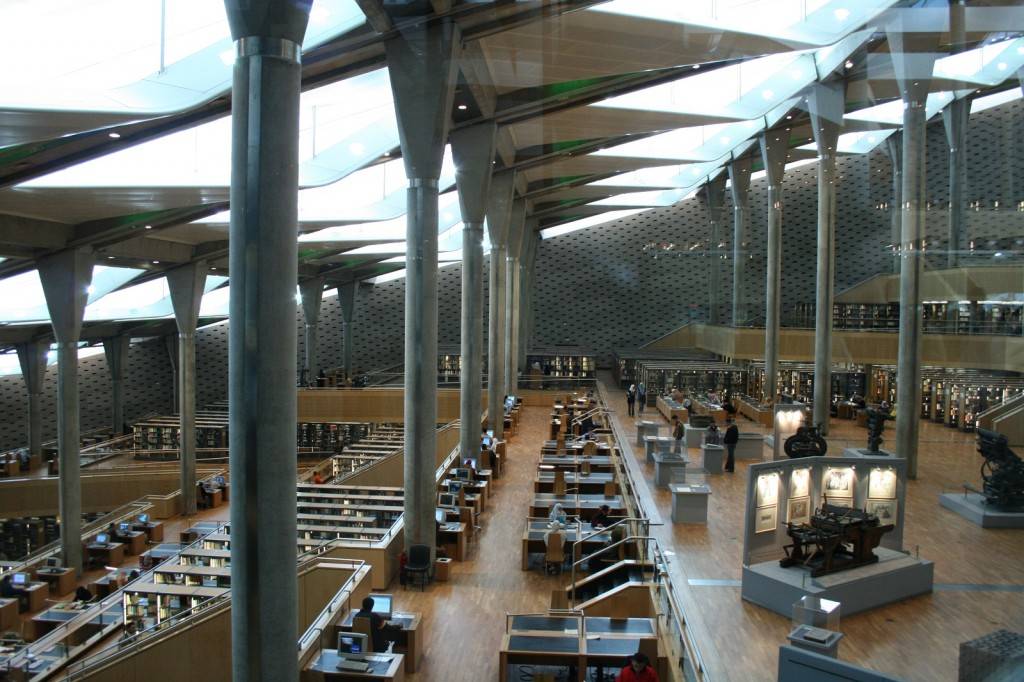The Bibliotheca Alexandrina is a modern effort to recreate the fabled Library of Greco-Roman Alexandria. In Ptolomaic times it had the largest collection of books in the world. The idea of recreating the library came from the University of Alexandria in 1974, and a competition for the design of the buildings was organized by UNESCO in 1988.
The modern library is trilingual, containing books in Arabic, English and French. In 2010, the library received a generous donation of 500,000 books from the National Library of France, Bibliothèque nationale de France (BnF). The gift makes the Bibliotheca Alexandrina the sixth-largest Francophone library in the world.
It would be a wonderful gesture of good will to the people of Egypt for the people of the United States to make a comparable donation of books to the library. It would be especially great to do this now, while the Congress is denying U.S. funding to UNESCO; a donation to the Bibliotheca Alexandrina would show support for UNESCO's mission of building defenses of peace in the minds of men.
While English language books would seem to be the obvious counterpart to the gift from the French, there might well be collections of books in Arabic in this country that would be welcomed.
Gifts of books to the library should be carefully coordinated with the its staff. It is costly for a library to organize, store and catalog new accessions, and any library will want to select its collection. Ideally organizations such as the Library of Congress or university libraries might make contributions. Perhaps some organization such as the American Library Association or the U.S. National Commission for UNESCO might assume leadership in such an effort.


